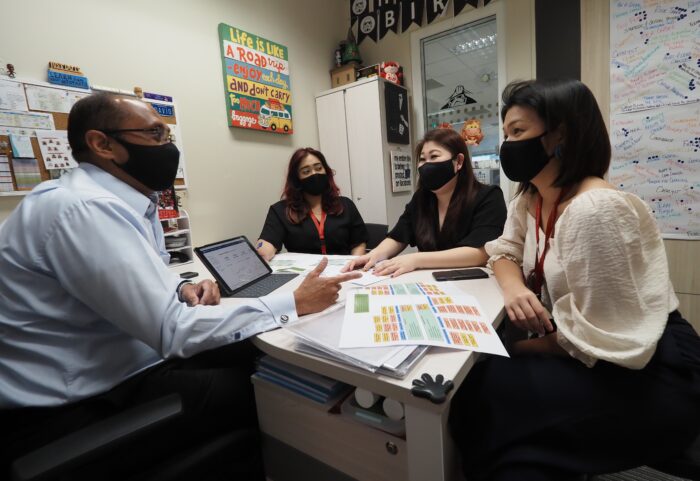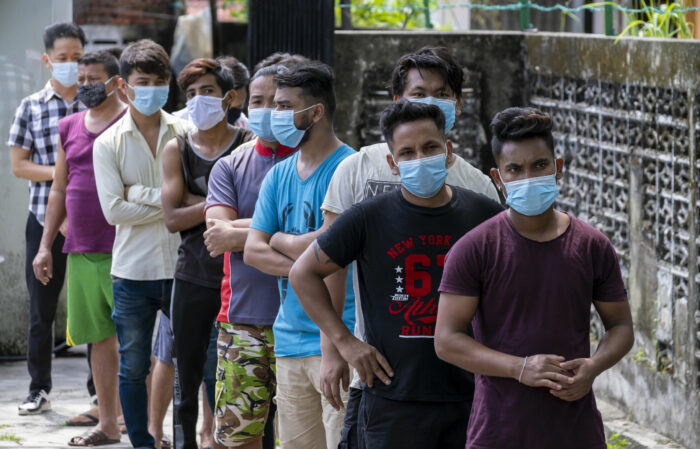South Korea’s minimum wage under debate

The decision has to be made before August 5, which is the legal deadline for the Ministry of Employment and Labour to deliver an official notice to the public.
Building and futureproofing the workforce of tomorrow

Tan Tock Seng Hospital’s David Hendrick shares with HRM Asia how workforces can be futureproofed through sustainable learning.
Thailand compiles list of 225,000 job vacancies for unemployed

To help workers made jobless by the latest COVID-19 wave, the country’s Ministry of Labour is compiling a list of more than 225,000 job vacancies.
Indian government advises staff to WFH

Various departments have asked their employees to report at staggered timings, while those living in COVID-19 containment zones are told to stay home.
8.8% of Malaysian workers paid below minimum wage

8.8% of workers in the country are paid a basic salary below the RM1,200 (US$291) monthly minimum wage.
Why companies need ‘right-brain leadership’

Josh Bersin explains why the pandemic and its aftermath have highlighted the need for leaders who are empathetic, inclusive and highly flexible.
Thailand advises those in high-risk areas to work from home for 2 weeks

The Ministry of Public Health’s advisory comes as the number of COVID-19 cases are expected to spike after the Songkran festival.
Singapore to improve employment opportunities for disabled people

Some of the plans to help those with disabilities have already been rolled out in 2020, while more will be rolled out progressively from the second half of 2021.
Wage gap between regular and non-regular workers grows in South Korea

In the past 10 years, the wage gap between regular and non-regular workers has increased by 490,000 won (US$438), up 47.6%.
Employers in Malaysia failed to meet standard housing requirements

Offences include uncertified accommodation, non-compliance with local authority laws and not providing rest and dining areas to employees.
Labour union in Japan calls for raise in minimum wage of essential workers

A labour union, representing low-paid essential workers across different sectors in Japan, has urged for minimum wages to be raised.
70,700 new jobs created in Australia this March

Data from the Australian Bureau of Statistics (ABS) showed that 70,700 net new jobs were created in March, double the expected 35,000.
New Zealand sees employment numbers grow

Job vacancies have also increased across all industries, with the highest growth in healthcare, manufacturing, construction and hospitality.
Taiwan employees get highest-ever year-end bonus

Despite the economic fallout from the pandemic, employees received the highest-ever average year-end bonus of NT$70,513 (US$2,478) last year.
Employers fall short of providing positive digital employee experience

Focusing on providing an environment where employees are supported to digitally thrive influences a more positive workplace culture.
Australia gives cash incentive for unemployed to relocate for work

To incentivise job seekers to move to new locations for work, the government is giving them an upfront cash payment of A$2,000 (US$1,539).
HR Tech Fest Connect 2021 brings organisations into the future of work

At HR Tech Connect 2021, HR visionaries and experts like Anita Lettink and Josh Bersin will address the key priorities facing HR leaders in 2021.
Thailand provides free COVID-19 tests under social security scheme

The Ministry of Labour will provide free COVID-19 tests to members of the social security scheme, in a bid to curb the spread of COVID-19 in Bangkok.
Hong Kong to relax social distancing measures for vaccinated groups

The government also plans to provide F&B businesses an additional tranche of subsidies under the Anti-Epidemic Fund.
South Korean government urged to enact nationwide sickness programme

Labour activists are calling for more to be done for workers who experience adverse symptoms after receiving their COVID-19 vaccination shots.
Hong Kong’s tourism workers will be offered 2,000 vaccination-related jobs

This is part of Hong Kong’s Job Creation Scheme, which aims to create 30,000 temporary jobs in the public and private sectors over the next two years.
Indonesia union group urges for full payment for Eid allowances

Confederation of Indonesian Workers Unions (KSPI) president Said Iqbal has called for companies to make mandatory full payment for Eid allowances.
Malaysia approves COVID-19 vaccination leave

Human resources minister Datuk Seri M. Saravanan has given the green light allowing employers to give their staff leave for getting vaccinated.
Singapore’s career attachment programmes benefits jobseekers

Among the 9,500 trainees placed across 2,500 firms, four in five are recent graduates, while the remaining are mid-career jobseekers.
South Korea sees increase in non-regular female workers in their 20s

The number of women in their 20s who held non-regular jobs rose the fastest, growing by 5.5 percentage points.
Philippines disbursed US$215.9 million in maternity benefits in 2020

The level of disbursement was almost double the average annual release of US$126.79 million, before the maternity leave law was expanded in 2019.
Cambodia’s public servants risk losing jobs if they refuse vaccinations

While many civil servants and armed forces personnel had come forward for their jabs, there are some who do not want to receive inoculations.
Taiwan urges for laws to grant unpaid leave days for vaccination

The MOL has asked the Central Epidemic Command Center (CECC) to enact new laws allowing employees to take unpaid leave for vaccination.
Malaysia mulls giving a day off for employees to get jab

The Human Resources Ministry and the Ministry of Health are deliberating whether employees should be given an off-day to get their COVID-19 inoculations.
Beijing colour codes city buildings to show worker vaccination levels

The move taps on a system the government introduced last year that requires people to show a green code before they can enter most public venues.
